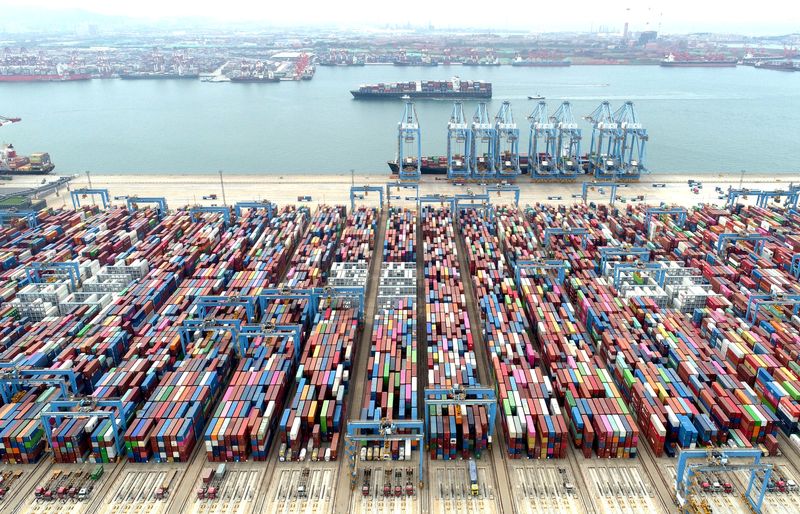China’s exports top forecasts, but imports disappoint amid depressed domestic demand
2024.09.10 00:04
BEIJING (Reuters) – China’s exports grew at their fastest pace since March 2023 in August, suggesting manufacturers are rushing out orders ahead of tariffs expected from a growing number of trade partners while imports missed forecasts amid weak domestic demand.
Outbound shipments from the world’s second-largest economy grew 8.7% year-on-year in value last month, customs data showed on Tuesday, beating a forecast of a 6.5% rise in a Reuters poll of economists and a gain of 7% in July.
But imports increased by just 0.5%, missing expectations for a 2% boost and down from the 7.2% growth a month prior.
The data showed exports remain a bright spot and a key driver for the $19 trillion economy, which has struggled to regain momentum as a prolonged property slump and a sluggish labour market have severely dented consumer confidence.
Economists have warned that Beijing risks undershooting its growth target if it becomes too reliant on exports, following a series of recent lacklustre data, raising pressure on policymakers for more stimulus to revive China’s economy.
August marked the sixth consecutive month of contraction in manufacturing activity, with producers reporting that factory gate prices were at their worst in 14 months, which suggests that firms are slashing prices to find buyers overseas.
Moreover, mounting trade barriers are emerging as another significant obstacle, threatening China’s price-driven export momentum.
Beijing’s efforts to negotiate with the European Union to ease tariffs on Chinese electric vehicles (EV) have made little headway.
And Canada last month announced a 100% tariff on Chinese EVs, along with a 25% tariff on Chinese steel and aluminium.
As China attempts to pivot and direct more exports to Southeast Asia, it is also facing push back there.
India is planning to raise tariffs on Chinese steel, Indonesia is eyeing heavy duties on textile imports, and Malaysia opened anti-dumping investigations into plastic imports from China and Indonesia.
Despite hopes of fiscal stimulus to support growth later in the year, analysts remain cautious about the outlook for China’s exports in the coming months.

“Exports have been a bright spot, but it cannot be assumed that it will be sustained,” said Ting Lu, Nomura’s chief China economist, at a forum last week.
He cited a higher base of comparison, increasing trade curbs and widening decline in prices as key challenges going into the fourth quarter.








